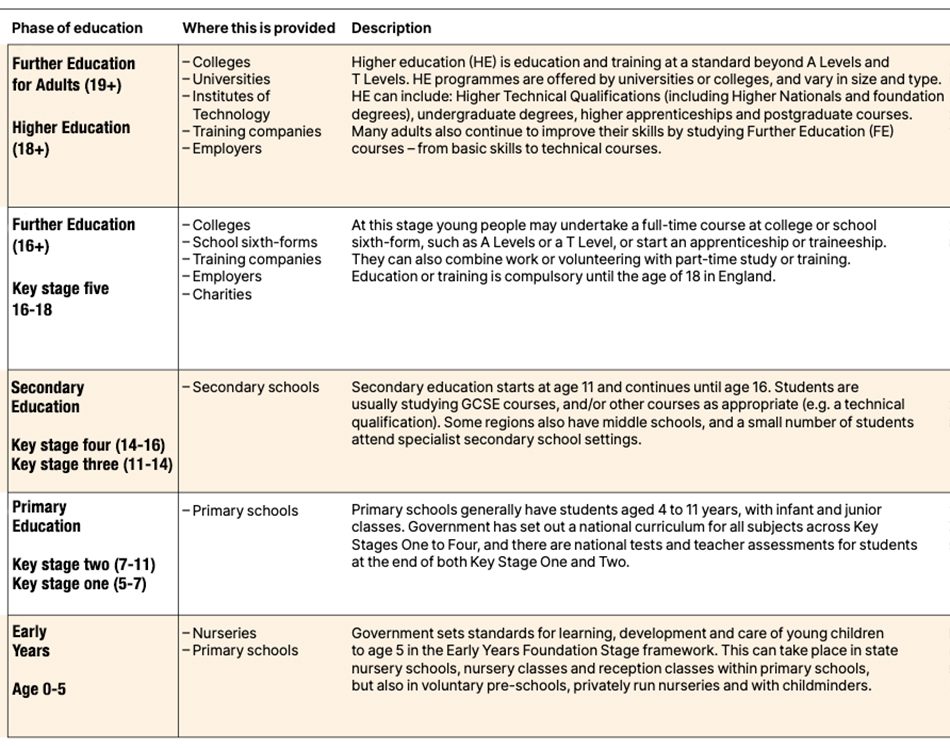
Education and skills for employers
A skilled workforce is at the heart of every business. As a business leader you get enquiries to work with local schools, colleges and universities – and you’ll probably have some questions given the education and skills landscape can be complex to understand. There are many different ways to get involved – but which are the best fit for your business, and how will they help connect you to your future workforce, or boost productivity by upskilling your current team?
Herts LEP alongside #SkillsforLife is offering everyone the chance to gain the skills they need to get the job they want – in whatever stage of your career and launching in September we are working with the Hertfordshire Local Enterprise Partnership to provide Skills Bootcamps in Digital across Hertfordshire.
Skills Bootcamps are fully funded for individuals by the Department for Education, with the guarantee of a job interview at the end. Businesses enrolling their employees must only contribute a portion of funding (10% for SMEs, 30% for large employers), while the Department for Education covers the rest!
Further details here.
https://www.hopinto.co.uk/bootcamps/digital-marketing-bootcamp
The benefits for business

DISCOVER NEW TALENT
Being involved with schools, colleges and universities is an opportunity to identify potential employees who are a good fit with your organisation. This can reduce expensive and time-consuming recruitment activity and support your planning for the future.
FRESH PERSPECTIVES
Students on an industry placement will quickly acquire new knowledge and skills and make a real contribution to your team as they do so. They can also bring awareness of emerging trends and new ideas to your business.
DEVELOP YOUR CURRENT TEAM
Getting your employees involved in education engagement activities can be rewarding and inspiring. It contributes to your team’s professional development, helping to build communication, leadership and management skills, and can strengthen their loyalty to your company. Linking up with A college or university can also open the door for technical training to upskill your existing staff.

BUILD NEW PARTNERSHIPS
Connecting with local schools, colleges and universities offers a strong value exchange. The institutions gain broader insight into your industry needs, and you can get involved in shaping the skills being taught in your local area, whilst benefitting from building your existing knowledge and expertise, for example, in developments in new technology.
This collaboration also demonstrates the wider contribution your business makes to the community.
CONNECT LOCALLY
Working with your local education institutions can contribute to your organisation’s social responsibility and reputation. Your real-world input brings the curriculum to life and gives learning a concrete focus.
It’s also a great opportunity to inspire, inform and help young people – which is good for them, the community, and you.
Ways to get involved

SUPPORTING STUDENTS
Much of your future workforce is currently in education. Sharing your knowledge, experience and advice will inspire and inform their career choices and to be the right employee for you. Opportunities include giving a class careers talk or providing one-to-one mentoring for a student on a longer-term basis.
PROVIDING WORKPLACE EXPERIENCES
Nothing beats hands-on experience for gaining an insight into working life, and your business can also benefit in a number of ways. Opening your doors to young people is an opportunity to raise awareness and understanding of your organisation and industry, and help students transition into the workplace. Activities include hosting short workplace visits or longer industry placement opportunities for older students.
SUPPORTING HIGH-QUALITY TEACHING
Your input into classes will ensure that teachers can share up to date knowledge and gives you the opportunity to shape the skills being taught around your business needs. You could help design a course or support a student project, give teachers the opportunity to find out about current industry practice by hosting a site visit, or even donate some equipment or workshop time for students.

WORK-BASED LEARNING
Helping an individual learn whilst they work in your business is a great way to develop a motivated, skilled, and qualified employee. For example, apprenticeships offer real job experience whilst a person studies for a formal qualification.
You can adapt these training programmes to meet the needs of your organisation and fill gaps within your workforce skillset, and managing students offers professional development for existing employees.
PROVIDING EXPERT GUIDANCE
Nobody knows your business like you do. Sharing your knowledge and expertise with government, and with the education institutions around you, will help to influence what is taught so that it is relevant to your business.
You could work with a college to design a course relevant to your business or be a school or college governor. Or you might contribute to the expert employer panels that shape technical education nationally or locally.
What is changing?
In England at age 16, young people have a range of options for the next step towards their career. The academic path, with GCSEs, A Levels and undergraduate courses, is well-understood. But not everyone is familiar with our technical education system, and this has not always met the needs of employers. Government has been working with employers to change technical education – to benefit industry, and help individuals gain good jobs.
What is key?

Employers are at the heart of our system for technical education. Groups of employers are setting the standards for different occupations. Each occupational standard describes what a person needs to know and be able to do for a particular role.
These standards are grouped into fifteen technical education routes – from agriculture, to catering, to health and science. The Institute for Apprenticeships and Technical Education works with panels of employer experts to make sure that the standards stay up to date.
Apprentices are employed and learn through on and off-the-job training. An apprentice develops the knowledge, skills and behaviours set out in the employer designed standard for their occupation. They are assessed against this standard so you can be sure an apprentice can really do the job. Most of the apprentice’s training is on-the-job working with a mentor, and additional off-the-job training is provided by a training organisation.
Depending on the occupation an apprenticeship can take between one and six years to complete.

T Levels are new two-year courses that launched in September 2020. They will be the main college-based technical option for students at age 16, sitting alongside apprenticeships and A Levels. T Levels offer students a mixture of classroom learning and ‘on-the-job’ experience during an industry placement of around 45 days.
The content of T Levels has been developed with employers, using the occupational standards as their reference. Alongside their technical knowledge, T Level students also build maths, English and digital skills.
You can be sure that these new qualifications meet the needs of industry and prepare students for work, further training or study. T Levels in 23 different subject areas are being introduced between September 2020 and September 2023.
Higher technical qualifications are specialised training for adults, at higher levels 4 and 5 (A Levels and T Levels are at level 3). Employer expert panels will decide which qualifications meet the employer designed occupational standards. Only level 4 and 5 qualifications that do this will be approved by the Institute as a Higher Technical Qualification.
Education pathways

Get in touch
If you would like to know more about education and skills for employers, please complete the form below and we’ll contact you.

